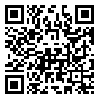Thu, Feb 19, 2026
| فارسی
Volume 28, Issue 2 (Summer 2022)
IJPCP 2022, 28(2): 236-253 |
Back to browse issues page
Download citation:
BibTeX | RIS | EndNote | Medlars | ProCite | Reference Manager | RefWorks
Send citation to:



BibTeX | RIS | EndNote | Medlars | ProCite | Reference Manager | RefWorks
Send citation to:
Amirlou F, Saberi H, Hakim Shoushtari M. Modeling the Parenting Stress of Mothers of Autistic Children Based on Mindfulness and Meta-parenting With the Mediation of Self-efficacy. IJPCP 2022; 28 (2) :236-253
URL: http://ijpcp.iums.ac.ir/article-1-3641-en.html
URL: http://ijpcp.iums.ac.ir/article-1-3641-en.html
1- Department of Psychology, Roudehen Branch, Islamic Azad University, Roudehen, Iran.
2- Department of Psychology, Roudehen Branch, Islamic Azad University, Roudehen, Iran. ,h.saberi@riau.ac.ir
3- Department of Child and Adolescent Psychiatry, Faculty of Behavioral Sciences and Mental Health (Tehran Institute of Psychiatry), Iran University of Medical Sciences, Tehran, Iran.
2- Department of Psychology, Roudehen Branch, Islamic Azad University, Roudehen, Iran. ,
3- Department of Child and Adolescent Psychiatry, Faculty of Behavioral Sciences and Mental Health (Tehran Institute of Psychiatry), Iran University of Medical Sciences, Tehran, Iran.
Abstract: (4851 Views)
Objectives: It is highly important to identify the factors related to the general quality of life of parents, especially mothers of children with autism. Therefore, the present study aims to predict parenting stress based on mindfulness and meta-parenting considering the mediating role of parental self-efficacy of mothers of children with autism.
Methods: The present correlational study was conducted using the structural equation modeling (SEM) method. The study population included all mothers of 2- to 14-year-old children with autism referring to the therapeutic clinics in Tehran City, Iran, in 2021. Of this population, a total of 250 individuals were selected using the purposive sampling method and then responded to the parenting stress (PSI-SF), mindfulness (MAAS), meta-parenting (M-PQ), and parental self-efficacy (PSAM) questionnaires. The data were analyzed via the SEM method in the AMOS 21.0 software.
Results: The total path coefficient between mindfulness (P<0.01, β=-0.671), meta-parenting (P<0.01, β=-0.256), and parental self-efficacy (P<0.01, β=-0.352), and parenting stress was negative and significant. Also, the indirect path coefficient between parenting stress and mindfulness (P<0.01, β=-0.153) and meta-parenting (P<0.01, β= -0.116) was negative and significant at the level of 0.01. Moreover, the squared multiple correlation coefficient (R2) for the parenting stress variable was obtained at 0.63.
Conclusion: Mindfulness and meta-parenting can predict parenting stress in mothers of children with autism both directly and with the intermediation of parental self-efficacy. Therefore, to develop interventions for preventing high levels of parenting stress, it is necessary to utilize the findings to improve parents’ parent-child relationships.
Methods: The present correlational study was conducted using the structural equation modeling (SEM) method. The study population included all mothers of 2- to 14-year-old children with autism referring to the therapeutic clinics in Tehran City, Iran, in 2021. Of this population, a total of 250 individuals were selected using the purposive sampling method and then responded to the parenting stress (PSI-SF), mindfulness (MAAS), meta-parenting (M-PQ), and parental self-efficacy (PSAM) questionnaires. The data were analyzed via the SEM method in the AMOS 21.0 software.
Results: The total path coefficient between mindfulness (P<0.01, β=-0.671), meta-parenting (P<0.01, β=-0.256), and parental self-efficacy (P<0.01, β=-0.352), and parenting stress was negative and significant. Also, the indirect path coefficient between parenting stress and mindfulness (P<0.01, β=-0.153) and meta-parenting (P<0.01, β= -0.116) was negative and significant at the level of 0.01. Moreover, the squared multiple correlation coefficient (R2) for the parenting stress variable was obtained at 0.63.
Conclusion: Mindfulness and meta-parenting can predict parenting stress in mothers of children with autism both directly and with the intermediation of parental self-efficacy. Therefore, to develop interventions for preventing high levels of parenting stress, it is necessary to utilize the findings to improve parents’ parent-child relationships.
Type of Study: Original Research |
Subject:
Psychiatry and Psychology
Received: 2021/12/4 | Accepted: 2022/03/12 | Published: 2022/07/1
Received: 2021/12/4 | Accepted: 2022/03/12 | Published: 2022/07/1
| Rights and permissions | |
 |
This work is licensed under a Creative Commons Attribution-NonCommercial 4.0 International License. |






